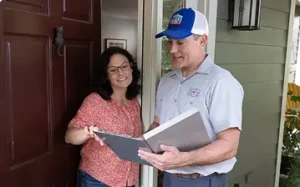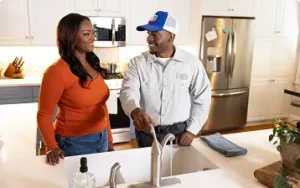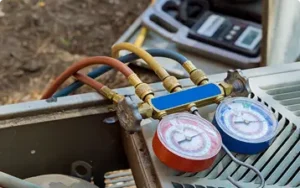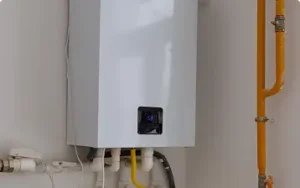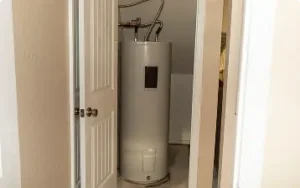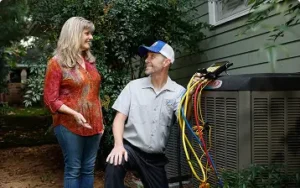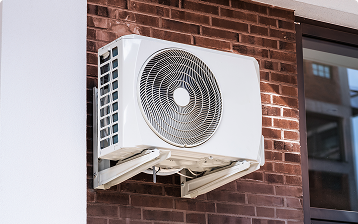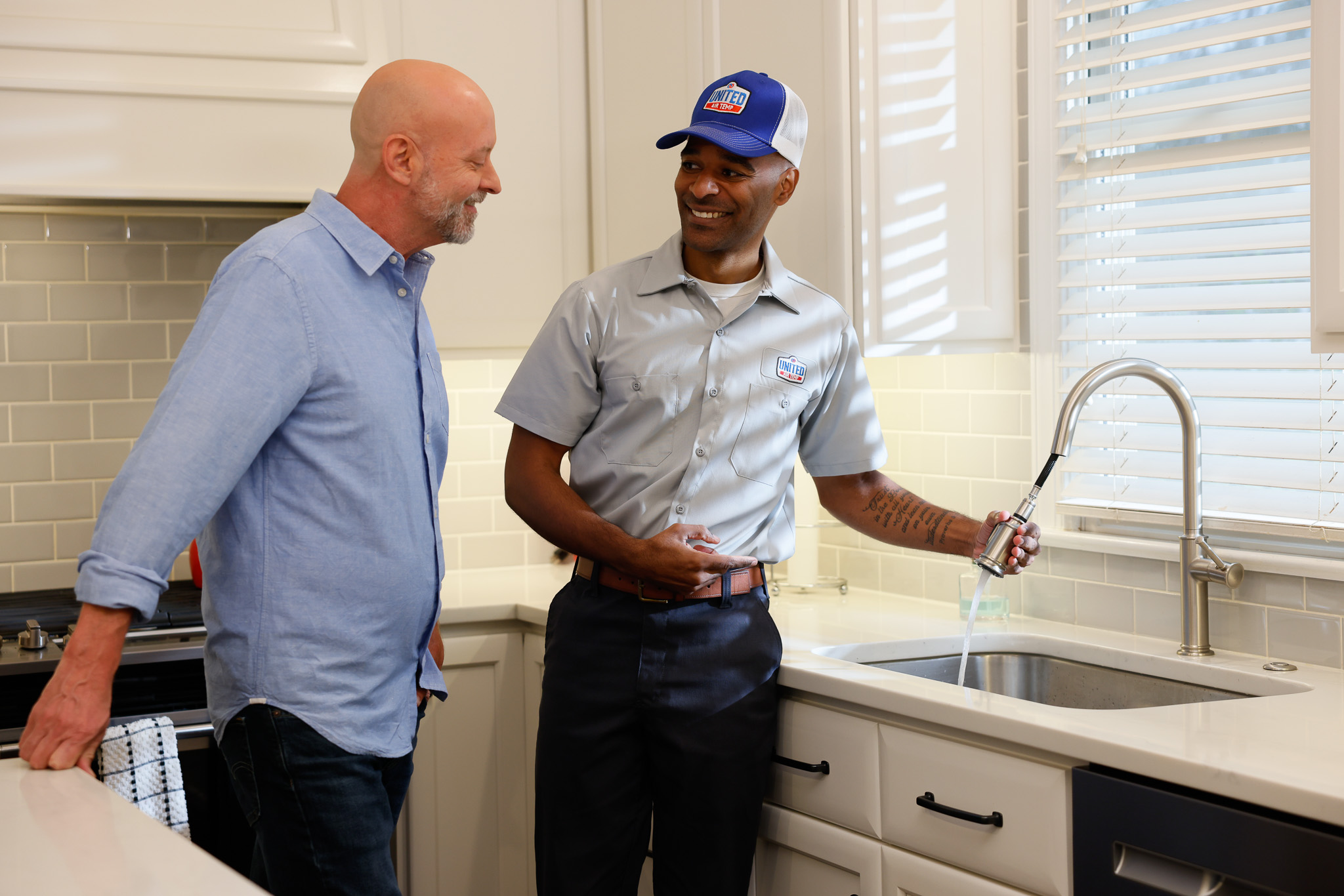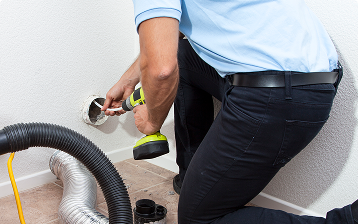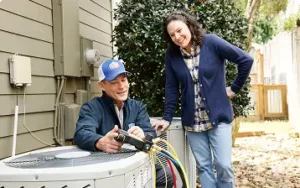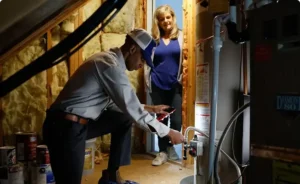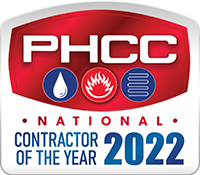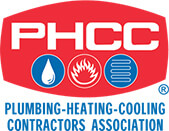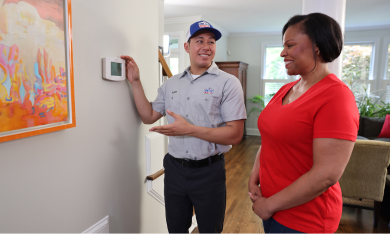
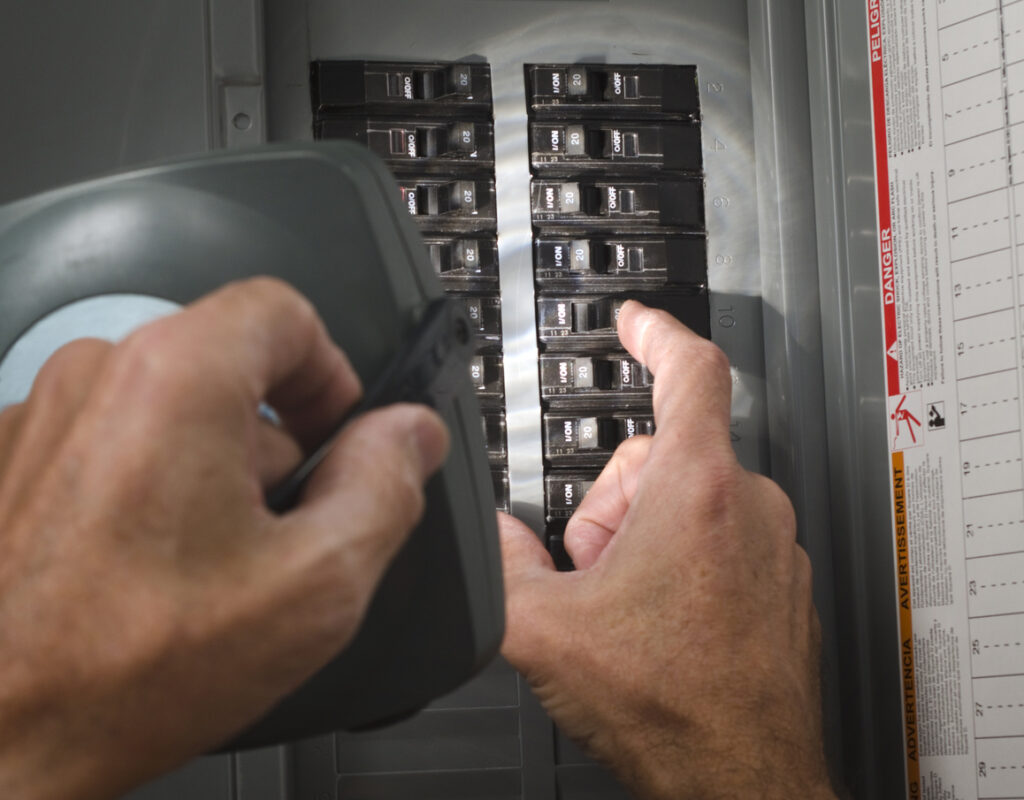
An air conditioning system that trips the breaker every time it starts is a frustrating problem, but it could also be a sign of a serious underlying issue.
Repeated breaker trips are your system’s way of protecting itself from electrical damage, and ignoring the warning signs can lead to more expensive repairs or even safety hazards.
What to Do When Your Circuit Breaker Trips
When your circuit breaker trips, the first step is to find your electrical panel, which is usually located in a basement, garage, utility room, or closet.
Open the panel door and look for the tripped breaker; it will be in the “off” position or stuck between “on” and “off.”
Flip it fully to the “off” position before switching it back to “on.” Stop and investigate further if it trips again immediately after the AC kicks on.
Common Causes of AC Circuit Breaker Trips
A tripped breaker can stem from a range of mechanical and electrical issues:
- Lack of maintenance: Dirty air filters or condenser coils can restrict airflow and make your system work harder. This causes your system to overheat and draw more power, overloading the breaker.
- Faulty capacitor: The capacitor stores energy and helps your AC motor start. A bad one forces the unit to overwork, which can trip the breaker.
- Faulty outdoor fan: If the outdoor fan isn’t spinning, heat can build up in the system, increasing energy draw and triggering the breaker.
- Compressor failure: The compressor is the heart of your AC. A failing compressor may draw too much current, especially when starting up.
- Electrical issues: Loose wires, aging breakers, or faulty connections can cause overheating or shorts that repeatedly trip the breaker.
How to Troubleshoot Tripped Circuit Breakers
If you’re comfortable doing some basic troubleshooting, there are a few things you can safely check before calling a professional.
Check the Air Filter & Condenser Coils
Start by checking your indoor air filter and replacing it if it’s dirty. It’s an easy fix that can improve airflow and reduce strain on your AC.
Next, head outside and inspect your condenser coils. If they’re covered in debris or grime, carefully clean them with a hose or a coil cleaner.
Call an HVAC pro for AC maintenance if you don’t feel comfortable performing these tasks.
Listen for Signs of a Faulty Capacitor
If your AC struggles to start or makes a humming sound before shutting off, the capacitor could be the problem.
A professional should replace capacitors, but noting the symptoms helps your technician diagnose the issue faster.
Check that the Outdoor Fan is Running
When your AC turns on, the fan in the outdoor unit should start spinning. If it isn’t, the system can’t release heat efficiently, which causes a spike in energy use.
Turn off the unit and look for any visible obstructions or damage to the fan blades. Don’t try to force the fan—call a technician for AC repair if it isn’t spinning properly.
Be Aware of Potential Compressor Issues
A failing compressor often causes breaker trips during startup. If your AC is older or you’ve noticed loud noises, hard starts, or no cooling, the compressor could be the cause.
This serious issue should be addressed promptly to prevent a complete system failure.
Rule Out Electrical Component Problems
If the breaker feels warm, won’t stay reset, or trips without the AC running, the issue could be with your electrical panel or wiring.
These are safety concerns that require immediate professional attention. Do not attempt to inspect or repair electrical wiring on your own.
Schedule AC Repair with UAT
If your air conditioner keeps tripping the breaker, don’t wait for it to become a larger problem. The licensed HVAC technicians at United Air Temp are trained to find the root cause and fix it safely and efficiently.
We offer same-day AC services in Northern Virginia and Washington, D.C., with upfront pricing, detailed system diagnostics, and a commitment to returning your home comfort as soon as possible.
Contact us today to schedule expert AC service in Northern Virginia and Washington, D.C.




